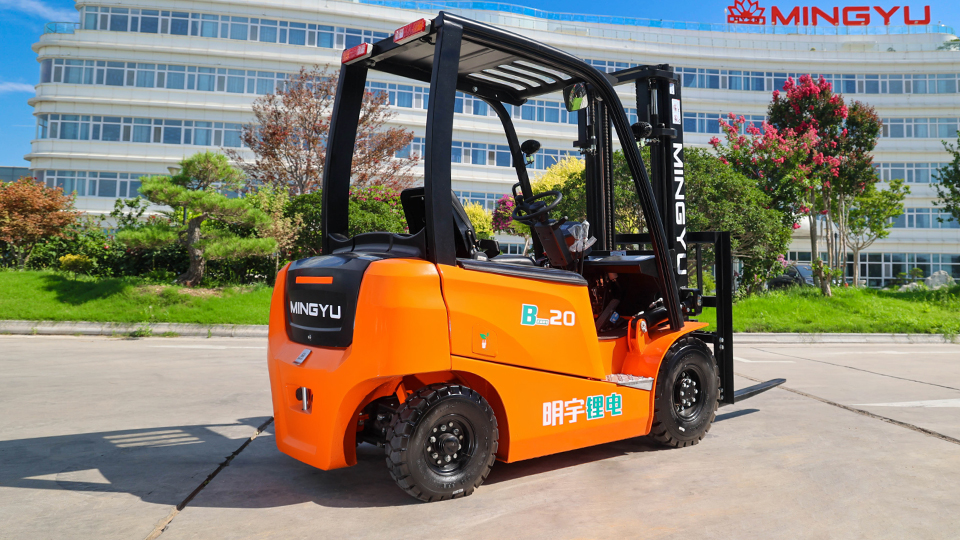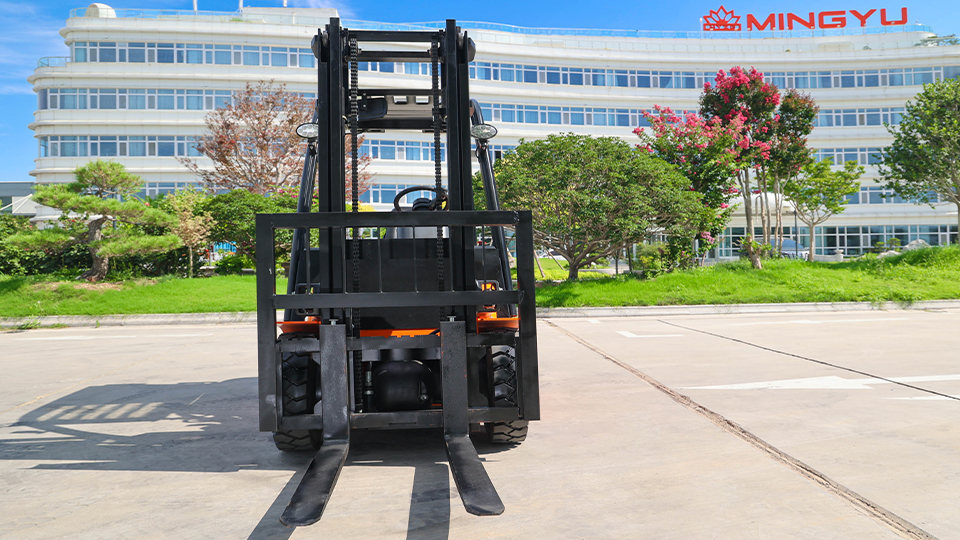
The Unique Challenges of Agricultural Forklift Operations
Agricultural settings present distinct challenges that are not typically found in traditional warehouses or industrial sites. These environments are often characterized by:
Uneven and unpredictable terrain: Fields, gravel paths, and muddy areas are common. This requires operators to have a deep understanding of load stability, center of gravity, and the specific capabilities of their equipment, such as rough-terrain forklifts or telehandlers.
Variable loads: Agricultural loads are often non-uniform, ranging from large, awkward bales of hay to heavy, unstable pallets of produce. Operators must be trained to handle these diverse loads safely, securing them properly and understanding how the weight distribution affects the machine's stability.

Seasonal demands: The agricultural industry operates on a strict seasonal calendar. During peak seasons like harvest, the need for new or refresher training can arise suddenly. Having an in-house trainer allows for flexible scheduling and on-demand training without the delays and costs of bringing in an external instructor.
Weather and environmental factors: Rain, dust, and temperature changes can impact equipment performance and visibility. An in-house trainer can provide specific instruction on how to operate safely under these conditions, a topic often not covered in generic training courses.
Key Benefits of a Train-the-Trainer Program
Investing in an internal trainer provides significant benefits that extend beyond mere compliance.
1. Cost-Effectiveness and Scalability
While the initial cost of a train-the-trainer program may be higher than a single operator course, the long-term savings are substantial. Once an employee is certified as a trainer, they can train an unlimited number of operators. This eliminates the recurring costs of external instructors, travel, and downtime associated with sending multiple employees off-site for training. It's a scalable solution that grows with your business, making it ideal for farms with high employee turnover or seasonal staff.
2. Enhanced Safety and On-Site Specificity
This is arguably the most critical benefit. A certified in-house trainer can tailor the training to your specific farm and its equipment. This includes:
Farm-specific hazards: Identifying and training on potential hazards like low-hanging branches, irrigation ditches, or uneven barn floors.
Equipment-specific training: Teaching operators on the exact make, model, and any unique features of the forklifts they will be using. This hands-on, contextualized training is far more effective than a generic overview.
Creating a culture of safety: The trainer becomes a constant presence and a safety advocate on the farm. They can conduct regular refresher training, spot unsafe behaviors in real-time, and ensure that safety is an ongoing conversation, not just a one-time class.
3. Flexibility and Reduced Downtime
Agricultural operations can't afford to halt production for training. An internal trainer provides unparalleled flexibility. They can conduct training sessions during slower periods, in smaller groups, or even one-on-one, minimizing disruption to daily tasks. This means new hires can be onboarded and trained immediately, and existing staff can receive refresher training as needed without waiting for an external provider's availability.
4. Expertise and Consistency
A certified in-house trainer brings a level of expertise and consistency to your safety program. They are not only an operator but also an expert on the teaching methods, regulatory standards, and evaluation techniques required by organizations like OSHA. This ensures that every operator receives the same high-quality, standardized instruction, which is vital for compliance and for preventing accidents caused by inconsistent training.

Implementing a Successful Program
To make a train-the-trainer program work, a few key elements must be in place.
Selecting the Right Candidate: Choose an employee who is not only a skilled operator but also a good communicator, patient, and committed to safety. They should have a solid understanding of the farm's operations and a natural aptitude for teaching.
Comprehensive Training and Certification: The selected employee must go through a reputable train-the-trainer certification program. This course will teach them how to design and deliver effective training, conduct hands-on evaluations, and maintain proper documentation.
Ongoing Support and Resources: The new trainer should be provided with the necessary resources, including training materials, evaluation forms, and a budget for continuing education. Their role should be formally recognized within the company's structure to give them the authority and support they need to succeed.
Establishing a Formal Program: The farm should create a formal, written training program that outlines the curriculum, evaluation criteria, and refresher training schedule. This ensures consistency and serves as a record for regulatory compliance.
Training is not a one-and-done event. It is a continuous process. By investing in a train-the-trainer program, agricultural businesses can build an enduring, efficient, and proactive safety culture that protects their most valuable assets: their employees. This approach moves beyond simply checking a box for compliance and instead creates a sustainable model for long-term operational excellence.
Name: selena
Mobile:+86-13176910558
Tel:+86-0535-2090977
Whatsapp:8613181602336
Email:vip@mingyuforklift.com
Add:Xiaqiu Town, Laizhou, Yantai City, Shandong Province, China